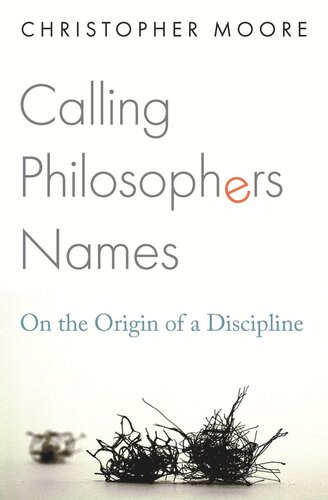

Most ebook files are in PDF format, so you can easily read them using various software such as Foxit Reader or directly on the Google Chrome browser.
Some ebook files are released by publishers in other formats such as .awz, .mobi, .epub, .fb2, etc. You may need to install specific software to read these formats on mobile/PC, such as Calibre.
Please read the tutorial at this link: https://ebookbell.com/faq
We offer FREE conversion to the popular formats you request; however, this may take some time. Therefore, right after payment, please email us, and we will try to provide the service as quickly as possible.
For some exceptional file formats or broken links (if any), please refrain from opening any disputes. Instead, email us first, and we will try to assist within a maximum of 6 hours.
EbookBell Team

4.4
62 reviewsAn in-depth intellectual history of the origins of philosophy in Ancient Greece centered around the origins of the term “philosopher.”
An original and provocative book that illuminates the origins of philosophy in ancient Greece by revealing the surprising early meanings of the word "philosopher"
Calling Philosophers Names provides a groundbreaking account of the origins of the term philosophos or "philosopher" in ancient Greece. Tracing the evolution of the word's meaning over its first two centuries, Christopher Moore shows how it first referred to aspiring political sages and advice-givers, then to avid conversationalists about virtue, and finally to disciplinary investigators who focused on the scope and conditions of those conversations. Questioning the familiar view that philosophers from the beginning "loved wisdom" or merely "cultivated their intellect," Moore shows that they were instead mocked as laughably unrealistic for thinking that their incessant talking and study would earn them social status or political and moral authority.
Taking a new approach to the history of early Greek philosophy, Calling Philosophers Names seeks to understand who were called philosophoi or "philosophers," and why, and how the use of and reflections on the word contributed to the rise of a discipline. Drawing on a wide range of evidence, the book demonstrates that a word that began in part as a wry reference to a far-flung political bloc, came, hardly a century later, to mean a life of determined self-improvement based on research, reflection, and deliberation. Early philosophy dedicated itself to justifying its own dubious-seeming enterprise. And this original impulse to seek legitimacy holds novel implications for understanding the history of the discipline and its influence.